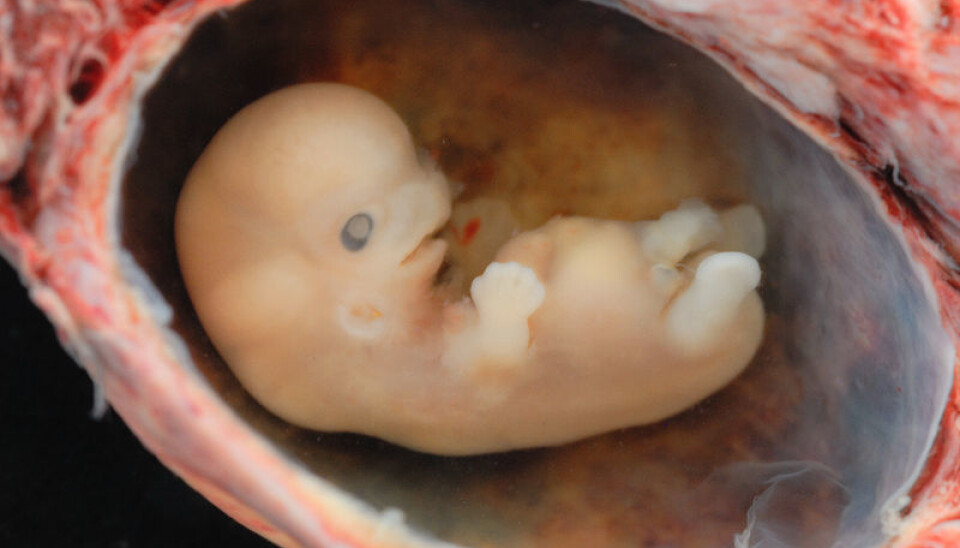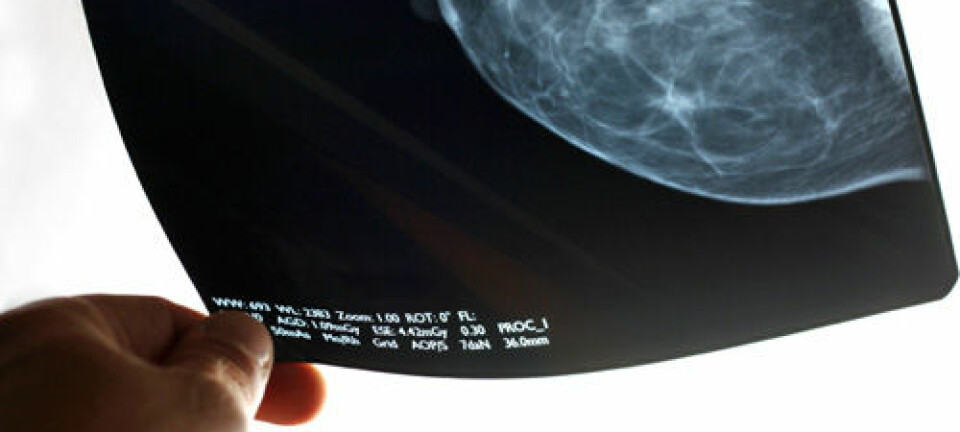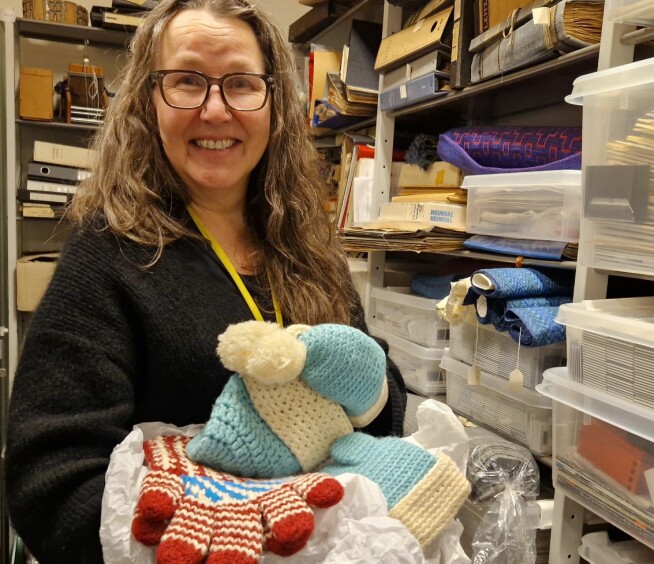
Foetal cells reduce risk of breast cancer
Cells from the foetus live on inside the mother for decades after childbirth. This could explain why giving birth could reduce the risk of developing breast cancer.
Mother and child do not only share genes – they also share cells.
In all pregnancies, small amounts of foetal cells end up in the mother’s body. In most women, the cells from the foetus are absorbed and renewed, just like their own cells. That way the cells can survive inside the mother for decades after the birth.
Whether the foetal cells survive or not is of great importance to the mother’s health.
A new study shows that mothers who have traces of foetal cells in their bloodstream years after giving birth are three times less likely to develop breast cancer than those who do not.
American studies had shown that some women had traces of the foetal cells and some did not, so it seemed natural for us to study whether the women faced different risks of developing breast cancer.
Mads Kamper-Jørgensen
On the other hand, those who do show traces of their foetus face a four-fold risk of developing colon cancer, also known as colorectal cancer.
”Both findings are solid and do not appear to be attributable to other factors,” says Mads Kamper-Jørgensen, who together with Danish and American colleagues has conducted the study at the Department of Public Health at the University of Copenhagen.
“The cells apparently have a significant protective effect against breast cancer and the opposite effect in relation to colon cancer.”
Foetal cells affect mother’s health
It has long been known that giving birth can lower the risk of developing breast cancer. However, there has been a lack of scientific documentation to support this theory.
We found that women who had cells with the male foetus’s Y chromosome in their blood were three times less likely to develop breast cancer. It appears that cells from the male foetus have a strong protective effect. For colon cancer, however, the situation was just the reverse: here the risk was four times higher.
Mads Kamper-Jørgensen
Things got moving when scientists recently discovered that cells from the foetus can survive inside the mother for years after giving birth.
When Jørgensen and his colleagues heard this news, it struck them that it could be these cells that provided the mother with the protective effect.
”We wanted to investigate whether there could be a real correlation,” he says.
“American studies had shown that some women had traces of the foetal cells and some did not, so it seemed natural for us to study whether the women faced different risks of developing breast cancer.”
Mothers carried cells with the male Y chromosome
All we can comment on in this study is women who give birth to baby boys. But we do expect that women who give birth to baby girls also have traces of the foetus in their blood. We believe the effect is identical for girls and boys.
Mads Kamper-Jørgensen
Distinguishing foetal cells from the mother’s own cells is not an easy task.
The challenge lies in identifying cells that do not belong in the woman’s body and which most likely stem from the foetus.
The only foetal cells that scientists are currently capable of distinguishing from the mother’s own cells are cells from male foetuses.
Cells from male foetuses all carry a Y chromosome, which is distinctly different from the mother’s X chromosomes, and these cells can be spotted using a simple blood test.
Data from large population study
The scientists used data and blood samples from a comprehensive Danish population study involving healthy women and men aged between 50 and 64, which was conducted in 1993-1997.
At first, the team only expected to find a breast cancer effect as this was the only cancer that, based on their experience, a pregnancy seemed to protect against.
To form a basis for comparison, the team also checked whether there was a link to colon cancer, which is common among women, although there were no direct signs that the risk of developing this type of cancer changes as a result of childbirth.
In other words, they expected to find a link to breast cancer but not to colon cancer.
Using the dataset, they found 428 women who were all basically healthy. But 89 of these subsequently developed breast cancer, 67 developed colon cancer, while 272 remained healthy.
“We found that women who had cells with the male foetus’s Y chromosome in their blood were three times less likely to develop breast cancer,” says Jørgensen.
“So it appears that cells from the male foetus have a strong protective effect. For colon cancer, however, the situation was just the reverse: here the risk was four times higher.”
Still unclear whether the same applies to girls
The researchers have so far only studied the effect of cells from male foetuses – but they expect to see the same effect in female foetuses.
This effect is, however, yet to be documented as it’s currently not technically possible to distinguish the female X chromosomes from the mother’s own cells.
“All we can comment on in this study is women who give birth to baby boys,” he says.
“But we do expect that women who give birth to baby girls also have traces of the foetus in their blood. We believe the effect is identical for girls and boys.”
Foetal cells boost the immune system
The biological mechanism that the foetal cells trigger in the woman’s body is yet to be fully understood, but the researchers have a pretty clear idea of what’s going on.
Jørgensen says that it’s still too early to say anything about why the foetal cells have such a strong effect on the risk of developing the various types of cancer.
His guess is that the foetal cells boost the immune surveillance in the mother’s body. The reduced risk of developing breast cancer, he says, could be due to the mother’s immune system becoming quicker at detecting and fighting breast cancer.
“The increased risk of colon cancer, on the other hand, may be put down to an overreaction that causes inflammation of the colon, which increases the risk of developing colon cancer.”
Foetal cells may have many hidden effects
It is hoped that further studies can shed light on whether there’s any truth in their assumptions, or whether the biological mechanism is completely different – maybe there’s not just one, but several independent mechanisms doing the work.
Once scientists get an idea of which processes are triggered by the foetal cells, they will be able to use that knowledge to tailor the optimal treatment for the individual woman.
The researchers have yet to study which other diseases the foetal cells can prevent or induce – in other words, how do the foetal cells affect the mother’s risk of developing, say, cardiovascular diseases, allergies and autoimmune diseases?
This is an important step to sort out before foetal cells can be used in clinics. Without this knowledge, scientists risk starting something up without knowing about the possible side effects.
For this reason, the new findings will not be used for therapeutic purposes any time soon.
There are, however, concrete uses for the new findings at this early stage:
“The screening for breast and colon cancer in use today can in some cases provide the wrong answers, which can have grave consequences for those affected,” says Jørgensen.
He would like to see screening offers being limited to women who are at particular risk of developing diseases. A simple blood test that checks for the presence of cells from the foetus could play a role in revealing which women should be offered screening and which should not.”
The findings have just been published in the European Journal of Cancer.
---------------------------------
Read this article in Danish at videnskab.dk
Translated by: Dann Vinther
Scientific links
- ”Opposite effects of microchimerism on breast and colon cancer”, European Journal of Cancer, doi:10.1016/j.ejca.2012.02.006
- About the population study (in Danish only)









